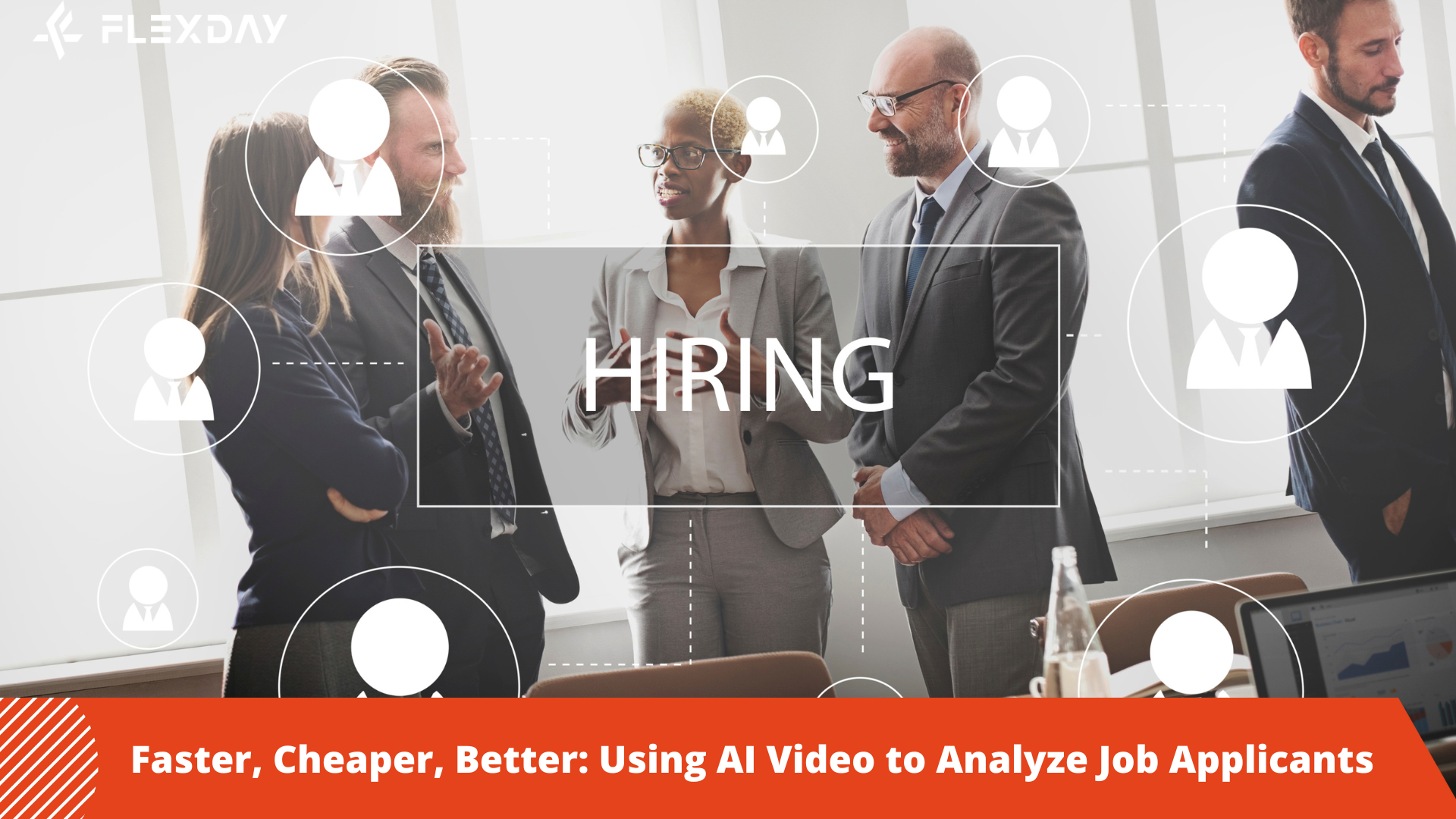December 5th, 2022
Faster, Cheaper, Better: Using AI Video to Analyze Job Applicants

Many of the world’s top corporations are now relying on AI-analyzed job interview videos to level-up efficiencies in recruitment. Essentially, the tech relies on AI algorithms to study how well an applicant responds to interview questions, and subsequently ensure that the applicant is a good fit for the company.
How AI- Analysis Helps Review Job Interviews
By analyzing an applicant’s facial expressions, tone of voice, body language, choice of keywords and other tell-tale mannerisms, AI can offer a reliable analysis of an applicant’s:
- People-orientation: or how well an applicant is expected to work with other people
- Mental agility: or how well an applicant can solve problems, including how well they come up with original solutions
- Flexibility agility: or how well an applicant can ‘roll-with-the-changes’ when dealing with unusual situations or unusual people
- Overall personality: or how well the applicant’s personality matches the kind of person the business is looking for.
An obvious time-saver, AI-analyzed job interviews also often end-up offering businesses a much deeper analysis of a candidate’s strengths and weaknesses, given that AI has all the time in the world to conduct and analyze a job interview.

AI Helps Make Interviews More Standardized
Earlier adapted companies report that AI goes a long way towards standardizing the interview process by ensuring that each candidate is asked the same types of questions and given the same amount of time to come up with answers.
In comparison, HR execs attempting to fill as many positions as possible often find themselves forced to do more interviews than they have time for, resulting in rushed insights, missed questions and interviews that simply are not the best they can be.
On the plus side, these same HR execs also report that AI analysis is perfect for culling a few, highly qualified candidates from a high number of applications.
And they like that once they have an AI-analyzed job interview in hand, it’s extremely easy to pass along that video to everyone else involved in the hiring process; long before the time comes for the final, face-to-face interview with the candidate.
AI Gives Job Interviews More Objectiveness
HR execs appreciate that an AI-driven interview, if expertly designed, can result in a much more objective evaluation of a job applicant.
Gone are human interviewers who take a subconscious dislike to a job applicant who reminds them of someone from their past who ‘did them wrong,’ turned-out to be a nightmare hire, or worse.
And gone are the instances when an interviewer is having a problem focusing on the interview after enduring yet another sleepless night or being forced to deal with an unexpected personal catastrophe.
In their place: An unblinking, AI technology that has no preconceived notions of who it likes or dislikes and no problem with fatigue or distraction.
Instead, the tech only nurtures an unrelenting zeal for finding the best person for the job based on the human rating system it has internalized

Data Can Be Stored For Later Use
Another benefit for HR managers is that any record of an AI-analyzed job interview video can be stored (with permission, of course) for years.
That enables HR execs to take a second look at a candidate years later whose skills might be perfect for a slightly different job than the candidate originally sought with the company.
Not surprisingly, AI-driven video job interviews have also won legions of fans among job-seekers. Many agree that AI-driven video interviews can, by its very nature, offer more objective analysis of their strengths and weaknesses.
Candidates also report that many AI-driven video job interviews enable them to proceed through the interview at their own pace and free them from the worry of ‘how they’re doing’ in the eyes of a human interviewer.
The convenience is of great benefit as well. AI-driven job interviews can be conducted at any time of the day or night, regardless of time-zone.
Consider AI for Your Interview Process
There is a major caveat to AI-driven interviews, for all its advantages, AI analysis of video-recorded job interviews has come under increasing regulatory scrutiny by governments in many parts of the world.
Regulators want to be sure that the tech truly is fair in its assessments and absolutely does not discriminate against any particular demographic.
That’s why when shopping for an AI-driven video job interview solution, or perhaps a custom-developed solution, it makes sense to seek counsel with a seasoned AI consulting firm that already knows the market, the regulations for your business, and can save you significant time and money by steering you to a specific solution suited for your needs.